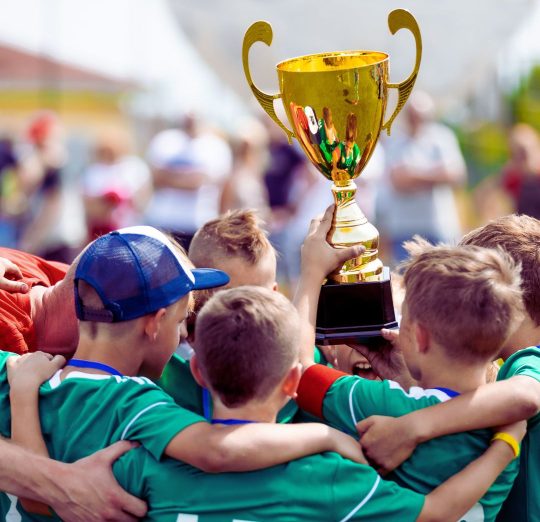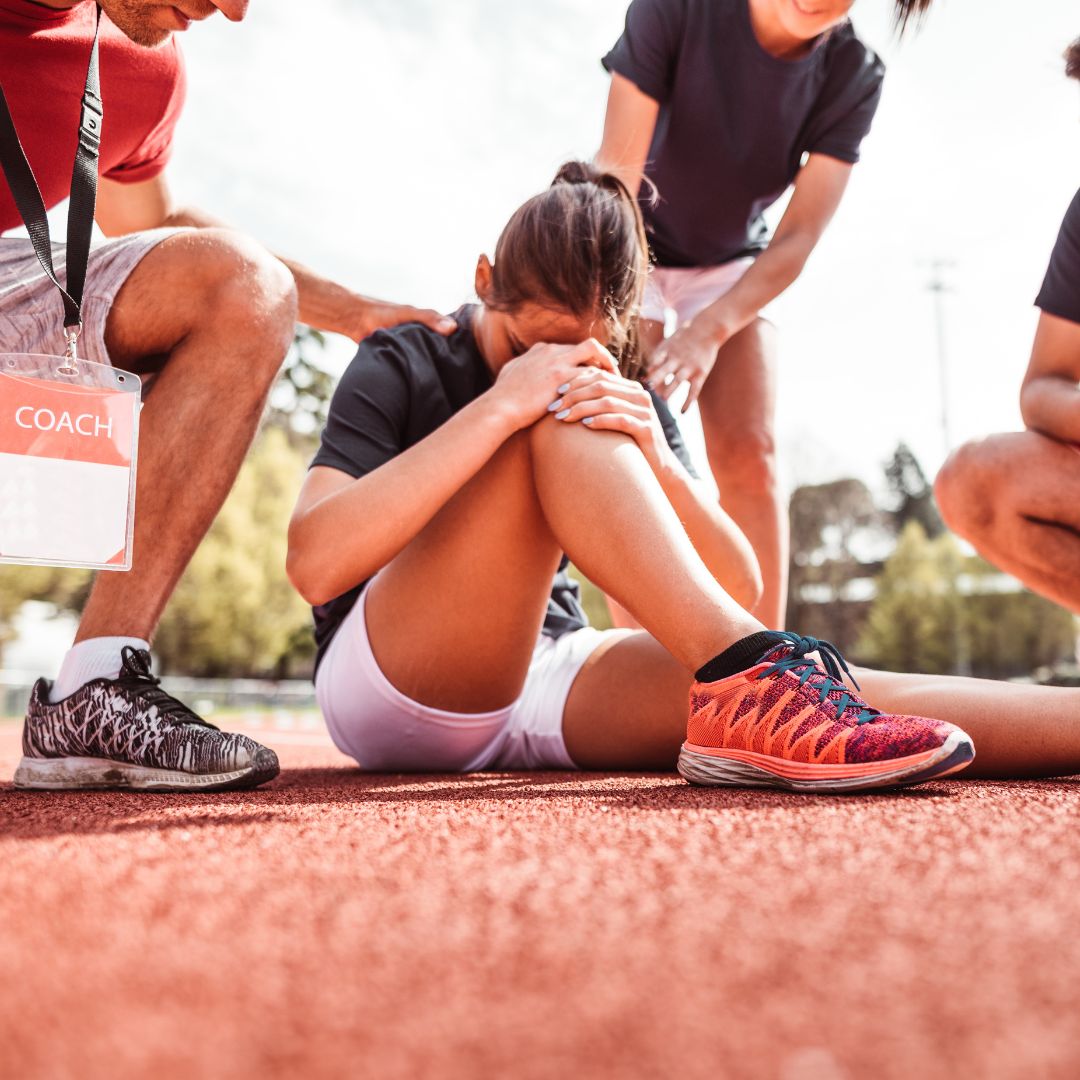Sports Psychologist in Burke, VA
You want to work on your mental game, but how do you train your brain?
At MindBalanceSPORT, We Train The Other Half Of The Athlete.
You want to work on your mental game, but how do you train your brain?
Mental training does not get much media attention, but at MindBalanceSPORT we know it is a game changer. The mental skills you will learn at MindBalanceSPORT are generalizable in the classroom, in sport and in life!
We know that mental skills can be successfully taught, even at an early age.

Our Services
Meet the Team





testimonials
Athlete Stories: Real Comebacks, Real Results

Emma, a high school basketball player, tore her ACL in the middle of her junior season. After surgery, she struggled with self-doubt and fear every time she stepped back on the court. Through sport psychology training, she learned visualization techniques and confidence-building exercises that helped her regain trust in her knee. When she returned for her senior season, she didn’t just play—she led her team to the playoffs.

Carlos, a soccer player, suffered a stress fracture in his foot and had to miss half of his season. Sitting out was mentally tougher than the pain itself. We worked on mental engagement strategies to keep him sharp—studying game film, setting small rehab goals, and using mental imagery to stay ready. When he was finally cleared, his confidence never wavered.

Jordan, a track athlete, strained her hamstring before a major competition. She feared losing speed and falling behind competitors. Instead of focusing on what she couldn’t do, we redirected her energy toward mental preparation, using self-talk and goal setting to keep her confidence strong. When she returned, she set a new personal record.
EXCELLENTTrustindex verifies that the original source of the review is Google. It was a great help to my 14-year-old competitive volleyball player daughter. Raven was great to understand and connect with her from start to end. We will continue with our sessions as needed.Trustindex verifies that the original source of the review is Google. Great results! I’ve loved working with Paula. Our sessions have greatly improved both the physical and mental aspects of my tennis game. I’m playing better and having more fun! Highly recommend!Trustindex verifies that the original source of the review is Google. Our family had a wonderful experience with Paula Castro. We needed some additional confidence in a particular area/sport and Paula helped get us there. We know who to turn to if we need help again. She’s been a Blessing. Thank you, Paula!Trustindex verifies that the original source of the review is Google. I highly recommend MindBalanceSPORT. Our son works with John Howard. John is very caring, positive, and effective at working with teenagers. John is an adept listener and created an individualized plan tailored to our son’s personality. After just a few sessions with John, we noticed a significant improvement in our son’s motivation and mental approach to sports and life in general. Our son looks forward to meeting with John and tells us that he benefits immensely from their connection.Trustindex verifies that the original source of the review is Google. Paula Castro is an outstanding professional on the field. She has helped my daughter improve her confidence, preparation, and thanks to these session she feels more prepared and motivated. Paula takes the time also to share (what she can) and align with us as parents to be on the same page. Strongly recommended!Trustindex verifies that the original source of the review is Google. MineBalanceSPORT has quickly become the area's expert in sports psychology. Their reputation is well deserved given their incredibly thoughtful, scientifically based approaches to treating performance-related conditions, and I have only heard glowing, positive feedback from those who have engaged in their program. I will also add that Drs. Jones and Chirby presented to us (our group comprises of 15+ doctors and masters level clinicans) about their program and impressed us all with their level of expertise and passion for this field. I give them my highest recommendation.Trustindex verifies that the original source of the review is Google. Dr. Jones was beyond helpful to me throughout our time together. If you are an athlete and you need advice or assistance this is the place to come to. She completely changed my outlook and mindset in a time when I needed her most. I look forward to staying in touch with her and am forever thankful for her expertise.Trustindex verifies that the original source of the review is Google. Paula has been a huge help with my daughter Morgan coming off her injury. It’s been 18 months since she’s played basketball and she’s thriving because I know Paula is guiding her the right direction. As a mother, I’m extremely gratefulTrustindex verifies that the original source of the review is Google. If you are looking for Amazing Psychologists who can help support you in your sports performance, you need to call MindBalanceSPORT! Dr. Chirby and her colleagues are a wealth of knowledge, they have so many helpful techniques for mind balance, and they have so much compassion for the communities that they serve! Highly recommend!!!
Recovery
While Everyone Has A Physical Ceiling, There Is No Mental Ceiling.
How Sports Psychologists in Burke, VA Can Help Athletes Overcome Performance Anxiety
How Sports Psychologists in Burke, VA Can Help Athletes Overcome Performance Anxiety
Performance anxiety is a common challenge faced by athletes at all levels, from amateurs to elite professionals. While physical preparation is critical, mental readiness often determines success in high-pressure situations. Mental skills coaches play a vital role in helping athletes overcome performance anxiety and unlock their full potential.
Understanding Performance Anxiety
- Physical symptoms: Increased heart rate, sweating, nausea, or muscle tension.
- Cognitive symptoms: Negative self-talk, fear of failure, or overthinking during competition.
- Emotional symptoms: Feelings of dread or nervousness before performing.
These responses are often triggered by the pressure to succeed and the fear of judgment from peers, coaches, fans, or oneself. Left unmanaged, performance anxiety can significantly hinder an athlete’s ability to perform at their best.
The Role of a Mental Skills Coach
- Identifying specific triggers for anxiety.
- Evaluating how stress impacts athletic performance.
- Establishing realistic performance goals that focus on effort rather than outcomes.
- Teaching techniques for maintaining focus under pressure.
Their primary goal is to help athletes develop mental resilience and ensure that psychological barriers do not interfere with physical capabilities.
Tools and Techniques for Managing Performance Anxiety
- Enhances present-moment awareness.
- Reduces overthinking and helps athletes stay focused during competitions.
- Guided imagery allows athletes to mentally rehearse successful outcomes.
- Builds confidence by creating a sense of familiarity with challenging scenarios.
- Helps control physiological responses such as rapid heart rate or muscle tension caused by anxiety.
- Techniques like reframing negative thoughts into positive affirmations combat self-doubt.
| Technique | Purpose |
| Mindfulness Training | Improves focus and reduces distraction |
| Visualization | Builds confidence through mental rehearsal |
| Breathing Exercises | Controls physical symptoms of stress |
| Cognitive Reframing | Replaces negative self-talk with positivity |
Key Benefits for Athletes
- Improved confidence in high-pressure situations.
- Enhanced ability to manage setbacks or unexpected challenges during competition.
- Greater enjoyment in sports by reducing fear-based emotions tied to performance.
By addressing both the physiological and cognitive aspects of anxiety, mental skills coaches ensure that athletes are equipped to perform confidently when it matters most. Their guidance can be transformative for those seeking not just technical excellence but also psychological mastery on their athletic journey.
Managing Performance Anxiety with Sports Counselling in Burke, VA
Performance anxiety is a common challenge faced by athletes of all levels, from amateurs to elite professionals. This form of anxiety can negatively impact an athlete’s performance, confidence, and overall well-being if not managed effectively. Understanding the causes and implementing strategies for managing performance anxiety are essential steps toward fostering growth and resilience in competitive environments.
What is Performance Anxiety?
- Physical Symptoms: Pounding heart, muscle tension, sweating, rapid breathing, nausea.
- Cognitive Symptoms: Negative self-talk, fear of failure, lack of focus or concentration.
- Emotional Symptoms: Feelings of dread, overwhelm, irritability.
These reactions stem from the body’s “fight or flight” response — a natural reaction that prepares us for action but can hinder athletic performance when it becomes excessive.
Common Causes of Performance Anxiety
- Fear of Failure: Pressure to meet expectations (self-imposed or external) can create overwhelming stress.
- Perfectionism: Setting unrealistically high standards leads to self-doubt if goals aren’t met.
- Lack of Preparation: Entering a competition without adequate training increases uncertainty.
- Scrutiny by Others: Fear of judgment from coaches, teammates, fans, or family members heightens anxiety.
Strategies for Managing Performance Anxiety
- Deep diaphragmatic breathing helps regulate heart rate and relaxes the body.
- Example technique: “4-7-8 Breathing” (Inhale through the nose for 4 seconds; hold breath for 7 seconds; exhale slowly through the mouth for 8 seconds).
- Mental imagery allows athletes to visualize success before it happens. This builds confidence by creating a sense of familiarity with desired outcomes.
- Mindfulness involves focusing on the present moment rather than fixating on past mistakes or future uncertainties.
- Practices such as meditation enhance awareness and reduce overthinking.
- Replace negative thoughts (“I’ll fail”) with constructive affirmations (“I’ve trained hard and I’m ready”).
- Rituals like listening to music or stretching help establish consistency and reduce nerves prior to competition.
The Role of Mental Preparation in Long-term Success
Athletes who actively work on mental preparation see improvements not only in their performance but also in their overall satisfaction with their sport. By addressing psychological barriers such as performance anxiety early on, athletes gain resilience that enhances their ability to manage stressful situations throughout their careers.
| Symptom Type | Examples |
| Physical | Sweating, rapid breathing |
| Cognitive | Negative thinking patterns (“What if I mess up?”) |
| Emotional | Overwhelm due to high expectations |
Performance anxiety doesn’t have to derail athletic potential when addressed with thoughtful strategies and expert guidance from mental skills professionals.
Understanding Performance Psychology in Burke, VA: The Role of a Mental Skills Coach in Sports
A mental skills coach, often referred to as a sports psychologist or performance consultant, specializes in enhancing an athlete’s mental game. While physical training is critical for athletic success, the psychological aspect can often be the deciding factor between success and failure. A mental skills coach works collaboratively with athletes to help them develop and refine the mental tools necessary to perform consistently under pressure.
Key Roles of a Mental Skills Coach
- Athletes are taught strategies to eliminate distractions during competition.
- Techniques such as mindfulness and visualization are emphasized to maintain attention on the task at hand.
- Coaches identify and challenge negative self-talk that can hinder performance.
- They introduce methods like affirmations or confidence-building exercises tailored to specific sports.
- Athletes learn coping mechanisms such as controlled breathing techniques or progressive muscle relaxation.
- Mental skills coaches help players understand triggers for stress and implement personalized solutions.
- Goal-setting practices are introduced to ensure athletes remain motivated over long seasons or recovery periods.
- Coaches assist in creating both short-term objectives (e.g., improving a specific skill) and long-term goals (e.g., achieving career milestones).
- Coaches guide athletes through setbacks, teaching them how to bounce back from injuries or losses.
- They emphasize maintaining emotional control in high-pressure situations.
Techniques Utilized by Mental Skills Coaches
| Technique | Purpose | Example |
| Visualization | Enhances mental rehearsal of performance | Picturing successful outcomes |
| Mindfulness Training | Increases present-moment awareness | Meditation sessions |
| Positive Self-Talk | Builds confidence | Replacing self-doubt with affirmations |
| Breathing Exercises | Reduces physiological stress responses | Box breathing during pre-game prep |
| Goal Setting | Maintains focus on measurable progress | Creating SMART (Specific, Measurable, Achievable, Relevant, Time-bound) goals |
How is a Mental Skills Coach Different from Other Professionals?
While there may be some overlap between a sports psychologist, therapist, or counselor working within athletics, the role of a mental skills coach focuses solely on leveraging psychological tools for enhanced performance. Unlike therapists who may delve deeper into underlying emotional challenges unrelated to sports, mental skills coaches prioritize practical strategies tied directly to competitive environments.
By tailoring their approach based on individual athlete needs—whether it’s overcoming fear of injury or handling team dynamics—they play an instrumental role in helping players unlock their full potential both mentally and physically.
Effective Techniques for Sport Performance Training in Burke, VA to Boost Athletic Success
Mental skills coaches play a vital role in helping athletes refine their mental game to achieve peak performance. They employ a variety of evidence-based techniques tailored to each athlete’s individual needs. These strategies not only enhance performance but also promote greater resilience, focus, and confidence in high-pressure situations. Below are some of the most effective tools used by mental skills coaches.
1. Goal Setting and Visualization
Establishing clear objectives is essential for athletic success. Mental skills coaches guide athletes through setting specific, measurable, achievable, relevant, and time-bound (SMART) goals. They also incorporate visualization techniques to help athletes mentally rehearse their performances.
- Short-term goals: Breaking larger objectives into manageable milestones.
- Long-term goals: Keeping the athlete motivated with ultimate aspirations.
- Creates mental blueprints for success.
- Helps reduce pre-competition anxiety by fostering familiarity with scenarios.
- Improves muscle memory by simulating physical actions mentally.
2. Mindfulness Practices
- Breathing exercises to regulate arousal levels.
- Body scans to increase awareness of physical sensations.
- Mindfulness meditation to develop focus and emotional control.
Studies show that mindfulness can improve both concentration and recovery after errors during competition.
3. Developing Positive Self-Talk
Athletes often engage in internal dialogue that can either hinder or enhance performance. Mental skills coaches work on restructuring negative self-talk into empowering statements.
Examples of Positive Self-Talk Strategies:
| Negative Thought | Reframed Positive Thought |
|—————————–|————————————|
| “I always mess up under pressure.” | “I’ve prepared well; I can handle this.” |
| “I’m not good enough.” | “I have the skills needed to succeed.” |
Through consistent practice, these affirmations can boost self-confidence and mitigate doubts during critical moments.
4. Focus Training and Concentration Drills
- Pre-performance routines: Structured habits before events to enhance focus.
- Cues for refocusing: Trigger words or actions that help redirect attention when distractions arise (e.g., taking a deep breath or clenching a fist).
- Attention-shifting techniques: Training athletes to switch between broad awareness (e.g., environmental context) and narrow focus (e.g., executing a specific movement).
5. Stress Management Techniques
- Progressive muscle relaxation (PMR): A systematic tensing and relaxing of muscle groups to reduce physical tension.
- Cognitive-behavioral strategies: Identifying stress-inducing thoughts and replacing them with constructive ones.
- Pre-event rituals: Consistent warm-up routines designed to instill calmness before an event begins.
By integrating these tools into their training programs, mental skills coaches empower athletes with the psychological edge they need for consistent peak performance under pressure. Whether working on visualization techniques or teaching mindfulness practices, these professionals ensure their clients are equipped for both the mental demands of sport and life beyond competition fields or courts.
Maximize Your Athletic Potential with a Sports Mental Coach in Burke, VA
Enhanced Focus and Concentration
One of the primary areas where athletes struggle is maintaining focus during competitions or training sessions. A mental skills coach helps athletes: – Develop techniques to block out distractions. – Use mindfulness practices to stay present in the moment. – Strengthen attention control under high-pressure conditions.
For example, visualization exercises allow athletes to mentally rehearse optimal performance scenarios, equipping them to maintain focus when it matters most.
Improved Stress Management
Athletic performance is often hindered by stress or anxiety tied to competition. Mental skills coaches provide strategies to manage these pressures effectively: – Breathing exercises that promote relaxation. – Cognitive reframing techniques for dealing with negative thoughts. – Establishing pre-performance routines that create a sense of familiarity and calm.
These tools help athletes handle not just competitive stress but also external pressures from fans, media, or personal expectations.
Building Mental Resilience
Setbacks such as injuries, losses, or slumps in performance can challenge an athlete’s confidence. A mental skills coach fosters resilience by: – Teaching coping mechanisms for setbacks and failures. – Encouraging self-compassion instead of harsh self-criticism. – Helping set realistic goals to rebuild motivation over time.
This resilience allows athletes to recover quickly from adversity and maintain their long-term commitment to success.
Strengthened Confidence
Confidence is vital for peak athletic performance. Through consistent mental coaching, athletes learn how to: – Identify their strengths and channel them into success. – Replace self-doubt with positive affirmations. – Set achievable milestones that reinforce feelings of accomplishment.
Confidence often defines whether an athlete can perform at their best in critical moments.
Key Benefits of Sports Psychiatry in Burke, VA for Mental Skills Development
| Benefit | Description |
| Focus & Concentration | Techniques for staying present and blocking distractions during competition. |
| Stress Management | Tools like breathing exercises and cognitive reframing for handling pressure. |
| Mental Resilience | Coping strategies for setbacks such as losses or injuries. |
| Confidence Building | Practices like affirmations to boost self-belief and motivation. |
Long-Term Performance Sustainability
Beyond achieving peak performance during competitions, a mental skills coach equips athletes with life-long strategies that enhance both professional longevity and personal well-being: – Preventing burnout through better work-life balance management. – Cultivating habits that support emotional health alongside physical fitness.
Athletes who invest in developing their mental game are better prepared not just for current challenges but also future opportunities beyond their sports careers.
By addressing the often-overlooked psychological side of sports performance, working with a mental skills coach ensures an athlete’s growth as both a competitor and an individual.
How to Find a Sports Psychologist Near Me: Success Stories of Athletes Transformed by Mental Coaching
Sports psychologists and mental skills coaches have played a transformative role in the careers of many athletes, helping them overcome challenges, break through mental barriers, and achieve peak performance. These professionals provide tools and strategies to address issues like performance anxiety, motivation, focus, and resilience. Below are some notable success stories that highlight the power of mental coaching in sports.
Case Studies of Transformed Athletes
- Michael Phelps – Overcoming Pressure with Visualization
Michael Phelps, the most decorated Olympian in history, worked extensively with a sports psychologist throughout his career. His coach introduced him to visualization techniques, enabling him to mentally rehearse his races before even stepping into the pool. This practice helped him stay calm under immense pressure and maintain focus during critical moments.
Key takeaways from Phelps’ transformation:
– Visualization: Mentally rehearsing every scenario to prepare for unexpected events.
– Mantra Development: Using positive self-talk to build confidence.
- Simone Biles – Prioritizing Mental Health
Simone Biles brought global attention to the importance of mental health in sports during the 2021 Tokyo Olympics. With support from her mental skills coach and therapist, she made the courageous decision to withdraw from certain events to prioritize her well-being. Her journey underscored how addressing mental challenges can ultimately strengthen an athlete’s resilience and long-term performance.
Key lessons from Biles’ experience:
– Boundary Setting: Understanding personal limits in high-pressure situations.
– Resilience Training: Building strength through self-awareness and mindfulness practices.
- Novak Djokovic – Managing Emotions for Consistency
Novak Djokovic credits much of his success on the tennis court to embracing mindfulness and emotional regulation techniques taught by his mental coach. By learning how to channel frustration into concentration, he developed greater consistency in high-stakes matches.
Methods used by Djokovic include:
– Breathing Techniques: Regulating emotions through controlled breathing during tense moments. – Routine Development: Establishing pre-match rituals for a sense of control.
Common Themes Across Success Stories
| Technique | Purpose | Example Athlete |
| Visualization | Enhances focus & prepares for scenarios | Michael Phelps |
| Emotional Regulation | Maintains composure under pressure | Novak Djokovic |
| Mindfulness Practices | Promotes self-awareness & clarity | Simone Biles |
These tools not only elevate athletic performance but also foster personal growth beyond sports.
The Broader Impact on Athletic Performance
The success stories above reflect how sports psychologists don’t just help athletes win medals or championships—they empower them to unlock their full potential both mentally and physically. Whether it’s managing anxiety before critical events or recovering after setbacks, these professionals provide strategies that make lasting impacts on athletes’ careers.
Athletes who embrace mental coaching often discover that success isn’t just about physical skill; it’s equally about mastering the mind.








